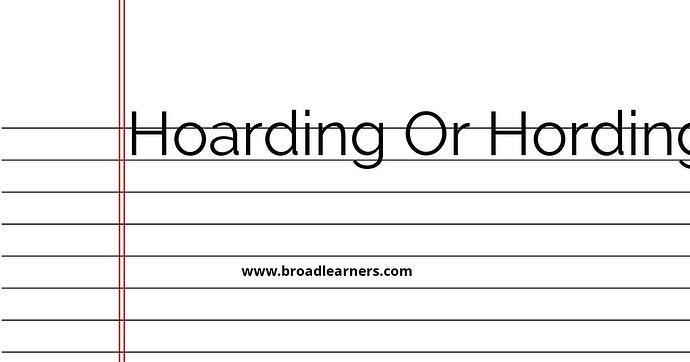'Hoarding', 'hording', and 'hoarding' are commonly confused words in English grammar. Understanding the difference between 'hoarding', 'hording', and 'hoarding' is important to use them correctly in written and spoken English.
'Hoarding' is a noun that refers to the action of collecting and storing excessive amounts of things, often to the point of cluttering one's living space.
'Hording' is not a recognized word in English. It is likely a misspelling or a confusion with 'hoarding'.
'Hoarding' is a gerund form of the verb 'hoard', which means to accumulate or collect things in large quantities and keep them for oneself.
Let's take a closer look at the meanings and usage of 'hoarding' and 'hoarding'.
| 'Hoarding' | 'Hoarding' |
|---|---|
| The word 'hoarding' is a noun that refers to the action of collecting excessive amounts of things. | The word 'hoarding' is a gerund form of the verb 'hoard', which means to accumulate or collect things in large quantities. |
|
|
To remember the difference between 'hoarding' and 'hoarding', it can be helpful to remember that 'hoarding' is a noun referring to the action of collecting excessive amounts of things, while 'hoarding' is a gerund form of the verb 'hoard'.
Here are some examples of correct usage:
- His hoarding of books made it difficult for him to find space in his apartment.
- She admitted to hoarding sentimental items from her childhood.
- Hoarding food during times of scarcity is a natural instinct.
- The city established a task force to address hoarding cases in the community.
Remembering the correct usage of 'hoarding' and 'hoarding' will improve your grammar and communication skills.
